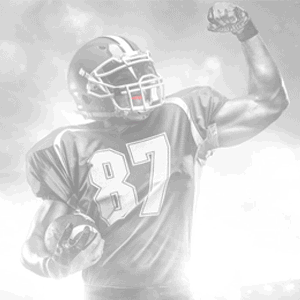Who Is Responsible For Player Safety: The League Or The Player?

 During a November 4th Monday Night Football game between Green Bay and Chicago, Packers quarterback Aaron Rodgers exited the game early with a shoulder injury to his non-throwing arm. He didn’t return to the game, but was noticeably not wearing a sling on the sideline and didn’t appear to be in great pain. Did the Packers hold Rodgers out, not wanting to risk further injury to their star player, or was Rodgers simply too hurt to play?
During a November 4th Monday Night Football game between Green Bay and Chicago, Packers quarterback Aaron Rodgers exited the game early with a shoulder injury to his non-throwing arm. He didn’t return to the game, but was noticeably not wearing a sling on the sideline and didn’t appear to be in great pain. Did the Packers hold Rodgers out, not wanting to risk further injury to their star player, or was Rodgers simply too hurt to play?
While the question seems minor, it does pertain to a much larger one in the world of sports; who is responsible for player safety: the league or the player?
Injuries are simply a part of sports; it’s just a fact. But it does seem like injuries are at an all time high. Because of that, player safety has become a hot button issue nationwide, with many leagues — from pee-wee to high school to the pros — taking major steps to protect their athletes.
A lot of that has to do with protecting players from themselves. If you’ve ever seen the film Any Given Sunday, you likely recall NFL Hall of Famer Lawrence Taylor’s character Luther ‘Shark’ Lavay; a not-too-far-from-reality version of Taylor’s actual self during his playing days. One of the plotlines of the film revolved around the brain damage ‘Shark’ was dealing with from a career of hard hits, and how he may not walk away from the next one. Yet he defiantly rebuffs the team doctor and plays anyway; nearly killing himself during a nasty hit on the field.
One of the endearing qualities of Taylor’s character in Any Given Sunday — and one that we all have come to expect — was that he was willing to put his life on the line to do his job, play the game he loved and provide for his family. He knew what the risk of the next hit was, yet it didn’t deter him for a second. The team doctor insisted he not play; yet he did. Why?
As Seattle Seahawks Cornerback Richard Sherman recently wrote in an op-ed for Sports Illustrated’s website The MMQB, players know what they’re signing up for:
“A NASCAR driver understands that anything can happen during a race; his car could flip at 200 miles per hour. A boxer knows when he goes in the ring what’s happening to his body. Just like them, we understand this is a dangerous game with consequences not just in the short term, but for the rest of our lives. All of us NFL players, from wide receivers to defensive backs, chose this profession.”
While he agrees with the league’s recent rule changes to protect players, Sherman makes a strong point to emphasize personal accountability on the part of players. As Sherman says, players must make sure they are playing the game correctly and not putting themselves in harm’s way by hitting with the crown of the helmet or aiming at a guy’s head.
This is a very interesting point, and one that should come up more in the player safety discussion. Players know their limits — Ronnie Lott famously cut off the tip of his pinky to go back onto the field; Jay Cutler famously removed himself from a playoff game due to pain — but should the decision be left entirely up to them? If Aaron Rodgers wanted to go back in on Monday Night, should the Packers have let him? Is one game worth putting the future of your franchise at risk?
It’s a very thin line. The NFL certainly has a responsibility to its players, just as any presiding body does over its members; but just because the NFL has the ability to enforce stricter protocol for injuries and limit the amount of contact on the field, should they? After all, NFL players willingly chose their profession.
Then again, some players would do anything to be on the field, court or ice to help their team win or take advantage of a situation. Richard Sherman even recounts a particular instance of that happening to him when he was still cutting his teeth in the league. So clearly players need some form of policing.
There is no simple solution. The NFL — much like every sports league, professional or otherwise — is walking a tight rope, as it must protect players from injury, protect players from themselves and protect the league’s product as a whole.
The league must find the right balance of rules that encourage player safety and personal responsibility on part of the players. That means increased education and training in proper hitting techniques. Players must also have the proper equipment to help prevent serious injury, such as custom mouthguards and pads.
Teach your players the importance of personal responsibility with custom mouthguards from Gladiator, the industry-leader in custom mouthguards.






